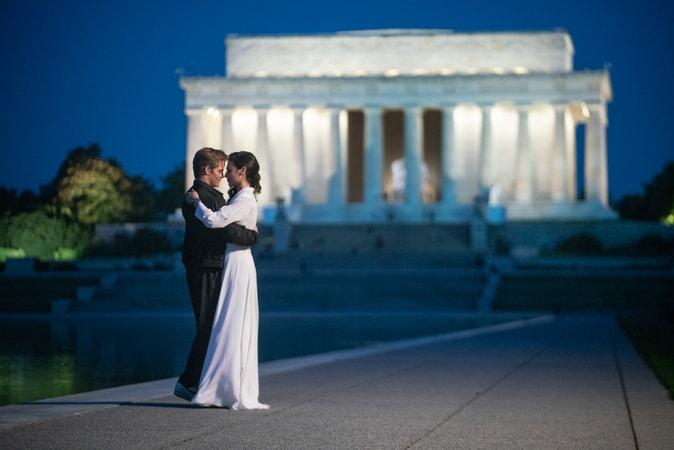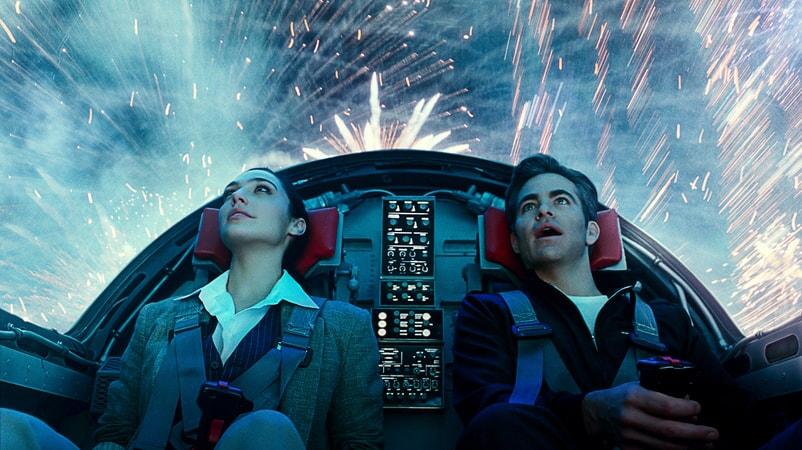
I usually try not to form an opinion about something before I’ve experienced it myself. It is a bit harder, though, to go into an experience (a movie, for example) without my thoughts already formed based on opinions and reviews and comments I’ve read online. I don’t go looking for these things, but even just scrolling through Facebook, you can read chunks of articles without clicking links and skim a friend’s post without reading all of it. It is a new challenge to go into a film without others’ comments on your mind.
But despite what I had read (only one or two of my friends liked the film), I still wanted to try Wonder Woman 1984 and make my own judgment. So I did. On New Years Day I shelled out the money to start a subscription to HBO Max (already planning what else I would watch to make the payment “worth it” if I did not like the movie), made some popcorn (extra buttery!), and watched.
For a breakdown on the film’s plot, you’re welcome to check out my colleague and site founder Lee’s review of the film. As for me, and if you’ve seen the film by now before pulling up this page on your own accord to learn my thoughts on the film (and I thank you), here are my caveats: I am not going to comment on the wishing stone storyline. I don’t care that others have called it ludicrous. If I can watch a movie and accept the powers of the Infinity Stones and that their potential for wish granting is activated when they are combined, I will accept that a piece of citrine can also grant wishes.
I am not going to comment on the fight scenes even though my electrical engineer husband did not enjoy the final scene with Wonder Woman and Cheetah at all, insisting that it would not work. If I can accept that a shield can both be made of a nonexistent element and also be thrown in ways that defy the laws of physics, I will also accept these lasso fight scenes even though some of the lasso movements did not make sense to me either.
Instead, I am going to respond to an article from The Mary Sue, basically judging Diana for how we find her living in this sequel. I won’t copy the full article. You can read it yourself, but here is the snippet that I feel compelled to respond to:
“I realized that Diana was … a shell of her former self because of a man…Wonder Woman 1984’s Diana has zero friends, nor is she really interested in them, or anything else, including her own accomplishments, and has been living like that for decades as far as we know. There are old mementos in her house that we see as she leaves to sit alone at a restaurant, mournfully watching as a waiter clears the extra plate, solidifying her status as a broken-hearted woman…”
The article goes on to continue their argument explaining why they are not okay with the fact that Diana has been mourning Steve’s loss for so long. Let’s talk about this:
How does one get through grief? I have seen many quotes and suggestions that offer the advice of telling stories. It has been said that you die twice: when you take your last breath, and when someone says your name for the last time. So we talk about our deceased loved ones and keep them alive with stories.
But what about Diana? She was probably friends with Steve’s friends like Sameer and Charlie and was able to talk about him with them, but then guess what happens to mortals? They die. So now, not only does Diana have no one to talk to about Steve, she also has to deal with more grief and has no one to talk to about any of her losses. How can she cope? Definitely not in the way you or I would. Of course she is going to be living a solitary life now; she does not want to lose anymore people. Why should we expect her to deal with her grief differently just because she is an Amazon? If anything, loss would be harder for an immortal because their losses keep adding up and will never end.
Is it because she is female? Are there articles that I do not know about complaining about the fact that Wolverine is off pining for Jean Grey after she died in X-Men: The Last Stand? Why is his pining and grief okay when Diana’s is not? He was bitter and angry. Yes, he was around people, but was he truly friends with them? What about Captain America, who spent his unthawed life pining so much for Peggy that he took a magic wishing stone (sorry, Infinity Stone) and went to relive his life with her, thereby sidelining him from the Marvel action. Until that magic trip, he did not go out on dates, and was seen as a loner. Yes, he joined the Avengers, but that was out of duty. Did he go out and enjoy life? What about all the people who survived the snap who were in therapy five years after? They struggled to move forward. I know five years does not equal six decades, but everyone moves forward in their own time, right? So why isn’t Diana afforded this same courtesy?
Now, I know the article I am responding to is just an opinion piece (like this one is for me), but if we are going to judge Diana’s response to losing her love so harshly, let us expand that and judge male superheroes just as much. Or not at all. To go a bit further, I realize that viewers may have higher expectations for female superhero movies because they are not as common right now, and they are setting some kind of standard, but do we really need to judge them so harshly?
Why can’t we take these movies as lightly and openly as we do the male superhero movies? Isn’t that the very definition of equality?
Wonder Woman 1984 was released theatrically on December 25, 2020, and will also end its exclusive run on HBO Max when it expires in a few weeks. Stream accordingly.

